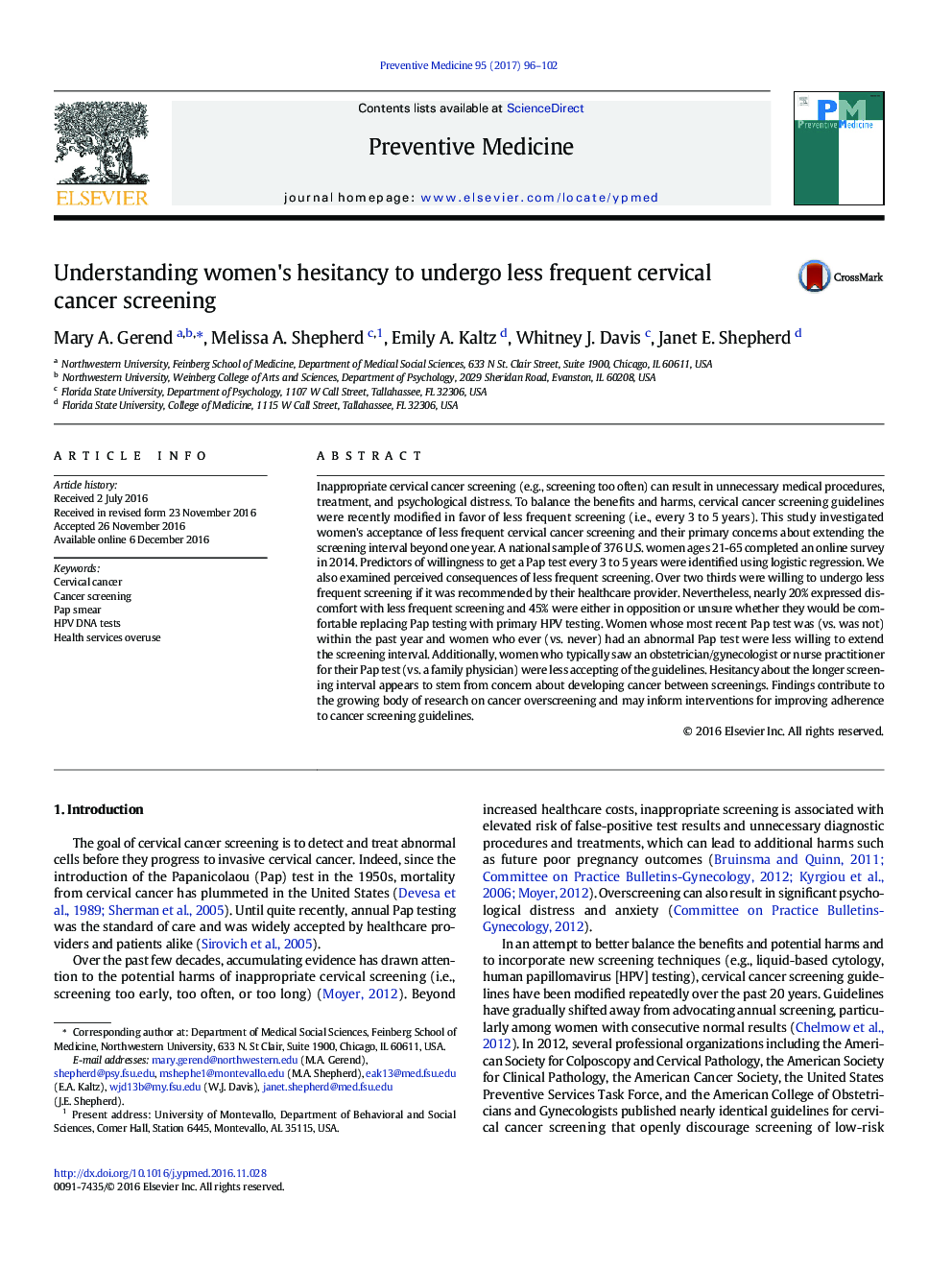| کد مقاله | کد نشریه | سال انتشار | مقاله انگلیسی | نسخه تمام متن |
|---|---|---|---|---|
| 5635816 | 1581619 | 2017 | 7 صفحه PDF | دانلود رایگان |
- Most women were willing to undergo less frequent cervical cancer screening.
- Some expressed opposition to extended screening intervals and primary HPV testing.
- Predictors of willingness to engage in less frequent screening were identified.
- Hesitancy stems from concerns about developing cancer between screenings.
Inappropriate cervical cancer screening (e.g., screening too often) can result in unnecessary medical procedures, treatment, and psychological distress. To balance the benefits and harms, cervical cancer screening guidelines were recently modified in favor of less frequent screening (i.e., every 3 to 5 years). This study investigated women's acceptance of less frequent cervical cancer screening and their primary concerns about extending the screening interval beyond one year. A national sample of 376 U.S. women ages 21-65 completed an online survey in 2014. Predictors of willingness to get a Pap test every 3 to 5 years were identified using logistic regression. We also examined perceived consequences of less frequent screening. Over two thirds were willing to undergo less frequent screening if it was recommended by their healthcare provider. Nevertheless, nearly 20% expressed discomfort with less frequent screening and 45% were either in opposition or unsure whether they would be comfortable replacing Pap testing with primary HPV testing. Women whose most recent Pap test was (vs. was not) within the past year and women who ever (vs. never) had an abnormal Pap test were less willing to extend the screening interval. Additionally, women who typically saw an obstetrician/gynecologist or nurse practitioner for their Pap test (vs. a family physician) were less accepting of the guidelines. Hesitancy about the longer screening interval appears to stem from concern about developing cancer between screenings. Findings contribute to the growing body of research on cancer overscreening and may inform interventions for improving adherence to cancer screening guidelines.
Journal: Preventive Medicine - Volume 95, February 2017, Pages 96-102
